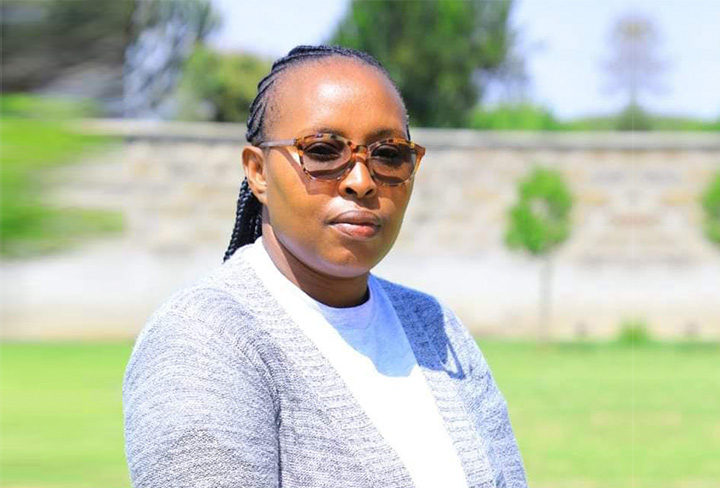
By Sharon Shetishoe
Women and youth got little direct benefit, specifically lease payment, from conservation. Lack of substantive benefits results from structural issues that see the title holders, the majority of them men, receive lease payments, with other family members benefiting indirectly. This outlook is slowly changing as women and youth embrace alternative revenue sources.
In Mara Siana Conservancy, Purity Letura leads the Sokodel Group, which makes sustainable sanitary towels. The group runs the “Mara Days for Girls”, an initiative to eliminate the stigma and limitations associated with menstruation so women and girls have improved health, education and livelihoods. Women and girls are empowered to pursue opportunities and achieve their goals by eradicating menstrual-related barriers. Purity says that they are in the business of turning periods into pathways.
The next step is constructing a honey processing plant in the Olderkesi Conservancy and Sanitary Towel Tailoring workshop at Siana.
Sokodel group is one of the formations that unite women to explore enterprise opportunities and learn. The Maasai Mara Wildlife Conservancies Association has facilitated the formation and adoption of the existing groups focusing on changing local merry-go-rounds to more high-end schemes that allow group members to access cheap and affordable, non-collateralised loans as an entry point in addressing barriers to financial resources. The Association offers technical support in building groups’ structures, monitoring savings, loaning procedures and ensuring that group members utilise the loans they borrow in enterprise development. Eighteen groups have successfully undergone training, 10 have fully transitioned and are accessing loans, while eight are in the pipeline to gain from the credit services.
Mary Naing’isa, an official of Balanite Group in Aitong’ says they are transacting business more professionally. “We started as temporary groups with no governance structure, no bank accounts and without financial prudence. We have since reorganised and gone through restructuring to access financial loans,” she concludes.
Enhanced skills have increased the enthusiasm and commitment of group members. For instance, Melua Kaurra from Olderkesi Conservancy notes, “I know my bee hives like I know my cattle. I know which bee hive has more honey and at what time of the year. Honey is our new milk. Camps and lodges buy from us our ready-made and packaged on-site. In our group, we resolved to save a percentage of the sales, plough back profits, and set aside a fund to ensure girls dependent on members attend school.”
The Association’s programme to train women seeks to empower women economically and bridge a gender gap occasioned by the land tenure system. Few women receive direct lease payments as title deeds are registered under men. MMWCA’s capacity building is designed for women groups who engage in various nature-based enterprises in the Maasai Mara. The training exposes the groups and individual women to run profit-making businesses through business identification and positioning, development of business plans, and budgeting by enhancing knowledge on savings, product marketing and packaging. The programme equips women with start-up kits that help increase productivity and hence improve returns. In Olderkesi Conservancy, Ositetei, and Oltulelei Beekeeping enterprises, run solely by women groups at Olderkesi Conservancy, have enabled the women from the border conservancy to earn profits from bee-keeping.
In addition, MMWCA collaborates with the National and County Governments to build referrals and linkages pathways. This partnership has aided the groups to benefit from the National Women Enterprise Fund, Uwezo Fund, Youth Fund and National Government Affirmative Action Fund. Today, five women groups have successfully accessed loans from the Women Enterprise Fund. The
loans are going into internal group loaning mechanisms following the Village Savings and Loaning methodology widely trained on.
“Since the introduction of Village Savings and Loaning Associations to our groups by MMWCA, we have realised better financial management, improved creditworthiness and eased access to facilities from banks and government institutions. Closely monitoring our finances has reduced over-dependency; we are now creditworthy and responsible for the affairs of our group and our businesses,” says Manuela Leparmarai.
Manuela resides in Endooto Village and is a Japan B Women Group member. She runs a beauty and cosmetic business in Aitong’.
The Association now seeks to scale these interventions in the Mara, following the successful implementation in a few conservancies. It is encouraging to see men support women to reach their full potential. We are eradicating some cultural barriers that sidelined women and girls.
Sharon is MMWCA’s Gender and Enterprise Officer
sharon@maraconservancies.org



